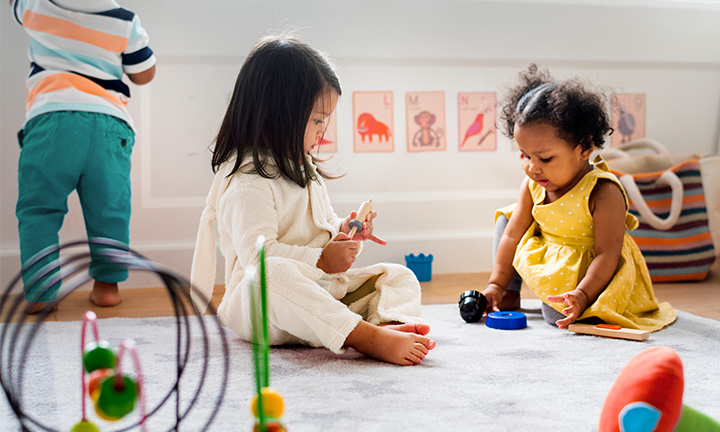
Preschool is often seen as a place where children learn the basics of reading, writing, and arithmetic. However, it is also a window to the world that encourages cultural understanding. In today's globalized world, it is important for children to develop an appreciation and understanding of different cultures. Preschool provides the perfect environment for young children to explore and embrace diversity.
One way that preschool encourages cultural understanding is through exposure to different languages. Many preschools offer language classes or incorporate foreign language learning into their curriculum. By exposing children to different languages at a young age, they develop an openness and curiosity towards different cultures. They learn that there are different ways of communicating and expressing oneself, which helps to foster an understanding and appreciation of cultural differences.
Another way that preschool promotes cultural understanding is through celebrating different holidays and traditions. Preschools often have multicultural events and activities where children learn about different holidays and traditions from around the world. By participating in these activities, children gain a deeper understanding of other cultures and develop empathy and respect for people who are different from them. They learn that there are different ways of celebrating and different beliefs and traditions that are important to different cultures.
Preschool also encourages cultural understanding through the use of diverse books, toys, and materials. Many preschools strive to have a diverse collection of books and toys that represent different cultures and perspectives. By exposing children to a variety of cultures through literature and play, they learn about the similarities and differences between themselves and others. They develop a sense of pride in their own culture while also showing respect for other cultures. This exposure to diversity helps to break down stereotypes and promote acceptance and understanding.
In addition to classroom activities, preschools often organize field trips to cultural events and places of interest. These field trips provide children with firsthand experiences of different cultures and help to reinforce what they have learned in the classroom. Whether it is visiting a museum, attending a cultural festival, or exploring a neighborhood with a different cultural heritage, these field trips offer children the opportunity to interact with people from different backgrounds and gain a deeper understanding of their culture.
Lastly, preschool teaches children about the importance of inclusivity and respect for others. Children are encouraged to be kind and compassionate towards their peers, regardless of their cultural background. They learn to appreciate and celebrate the differences that make each person unique. By fostering a sense of belonging and acceptance, preschool lays the foundation for a more inclusive and understanding society.
In conclusion, preschool is much more than just a place for academic learning. It serves as a window to the world and encourages cultural understanding. Through exposure to different languages, celebrations of different holidays and traditions, diverse books and toys, field trips, and teaching inclusivity and respect, preschool provides young children with the tools and knowledge necessary to become global citizens. By embracing diversity and fostering cultural understanding from a young age, preschool plays a vital role in shaping a more inclusive and harmonious society.